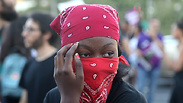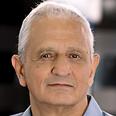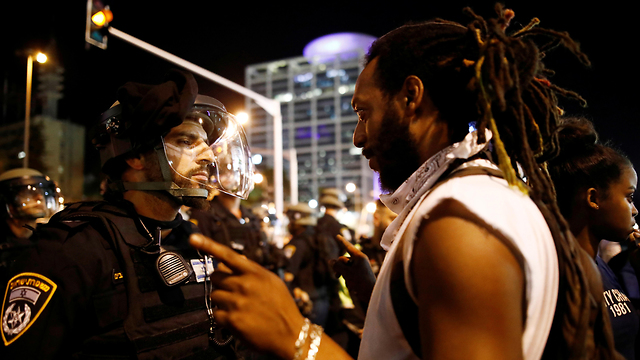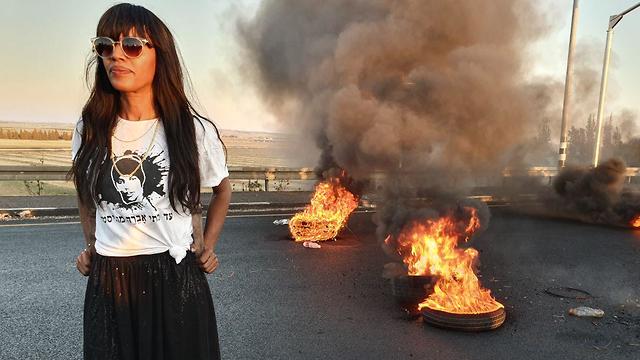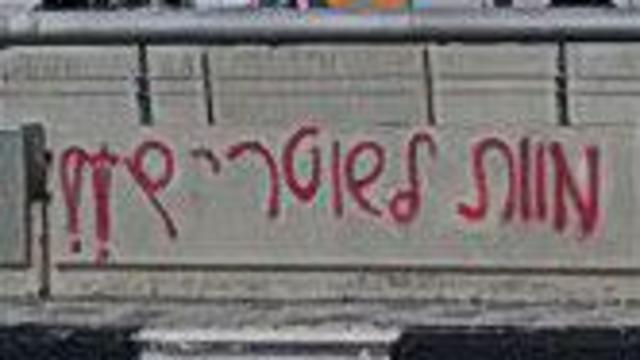But this was not a surprise. What was though, was the complete silence with which events were received by commuters.
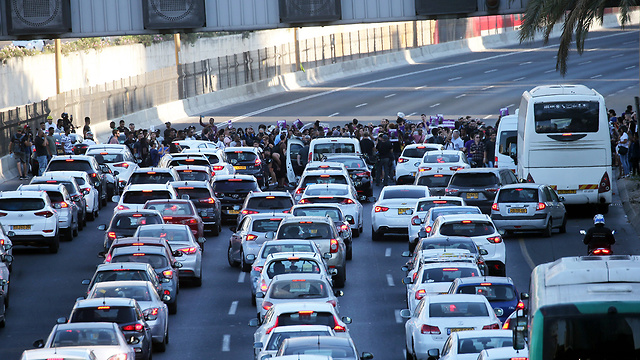
Israelis are normally very possessive of their freedom of movement. Put a roadblock in their path and they will use any means to circumnavigate it - and failing that resort to shouting, honking or shaming on social media.
But Tuesday there was silence. For over two hours I heard just one honk from the standing cars in fact on the parallel roads, open to traffic, cars sounded their support of the protesters.
This speaks volumes on the feeling of guilt many Israelis share or perhaps it is more a sense of embarrassment and shame.
It also explains Israelis' view of the establishment. They know why protesters are distrusting of the police, how could they be anything but?
Bad behavior by police towards Ethiopian community members could be explained in particular cases, but the amounts of incidents in which police behaved badly, some ending in death, leave no doubt that what we are seeing is not a mistake. It is a policy.
Israeli society is plagued by racism. Despite Jewish history, this is fact. Some discriminate based on skin color, others based on nationality and some base it on how long they've been Israelis as opposed to new immigrants.
There is no easy way to eradicate racism. Especially under the current government that incites it at every turn and salutes trigger happy behavior - such as the case of Elor Azaria, who shot and killed a suspected terrorist already unarmed and on the ground in Hebron 2016.
Israelis cherish every success story about a member of the Ethiopian community. Every officer in the armed forces, every doctor, member of Knesset and rocket scientist, but is blind to the lost and unemployed on the outskirts of cities, deaf to the stories of their daily struggles and experiences.
The government seems to expect these citizens to show gratitude for being let into the country in the first place. They were supposed to come here, kiss the holy ground and vote for its leaders.
The police force is an arm of the government and tasked with interacting with this community on a daily basis. Officers are supposed to be color blind. But police behavior towards the black youth would never be tolerated if it were directed at whites.
A lack of foresight on the part of the police leadership resulted in too few of the commuity joining the force so any attempt to defuse racism and prevent the tragedies we've seen, has failed.
The lesson that was learned by police however after the 2015 demonstrations over racism was a simple one: when a member of the Ethiopian community is shot by police and protesters hit the streets, police forces should make themselves scarce.
If they are not there to counter the demonstration, there will be no uneasy images in the press, no condemnation and no commissions of inquiry. All then, will be fine. Or in other words: tens of thousands of Israelis will be stuck in traffic paying the price for police chiefs job security.
Sometimes there is no need for thousands to come out to protest. A handful may be enough.
Tuesday afternoon there were five girls, none of Ethiopian origin, who took to the highway and stopped traffic.
Meni and Hadas were in the first in the row of cars now stopped. They were on their way to a family wedding with their kids all dressed up in the back seat. They timidly asked if perhaps they could just squeeze by and be on their way. No, they were told by a young female protester, now it is your turn to be stuck.
I asked the young woman if she thought this was beneficial to the community, to which she responded: "Enough is enough."













